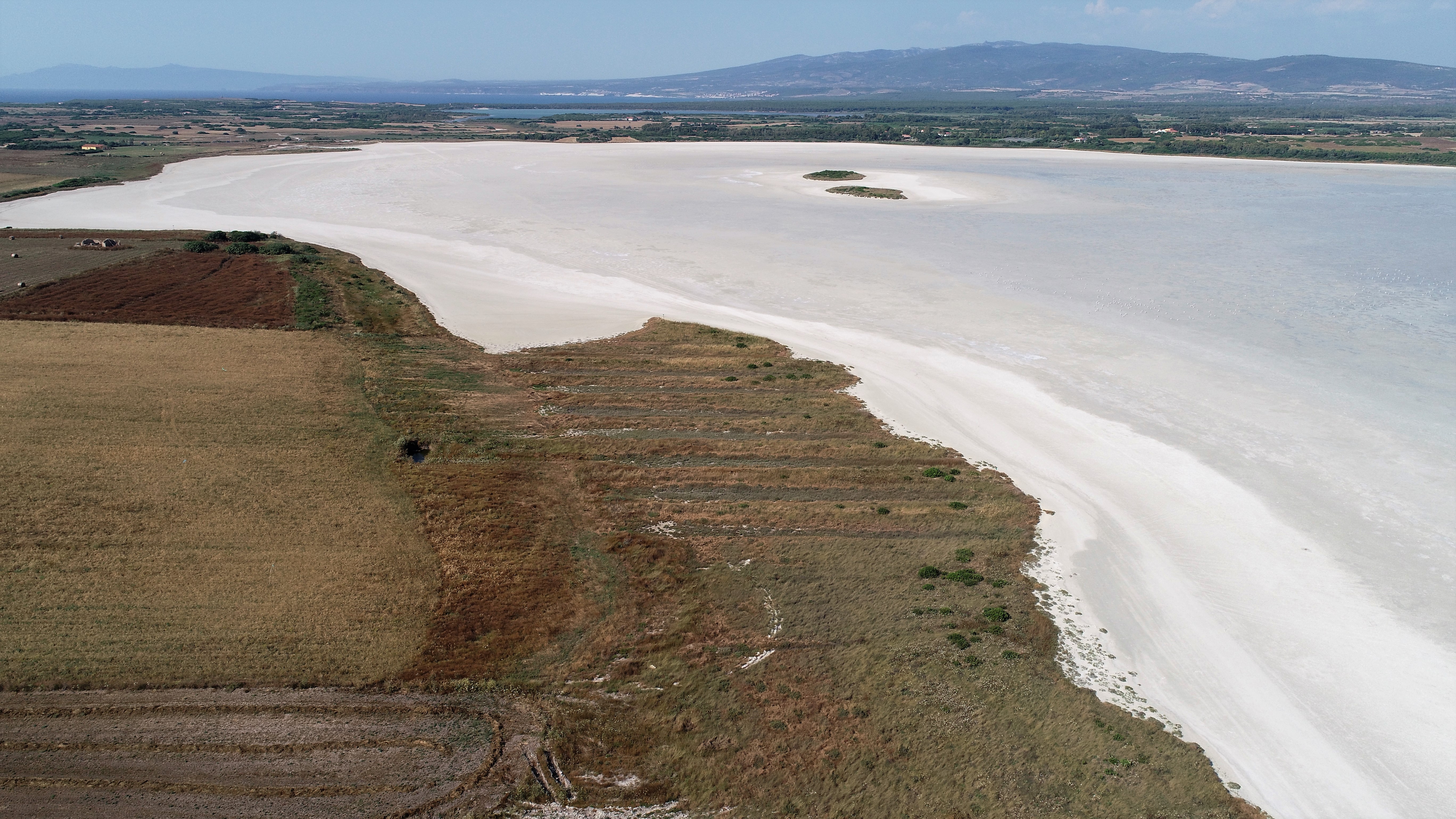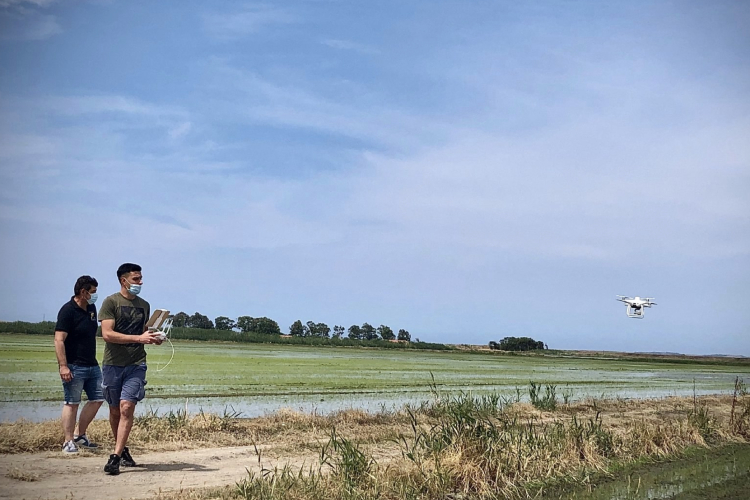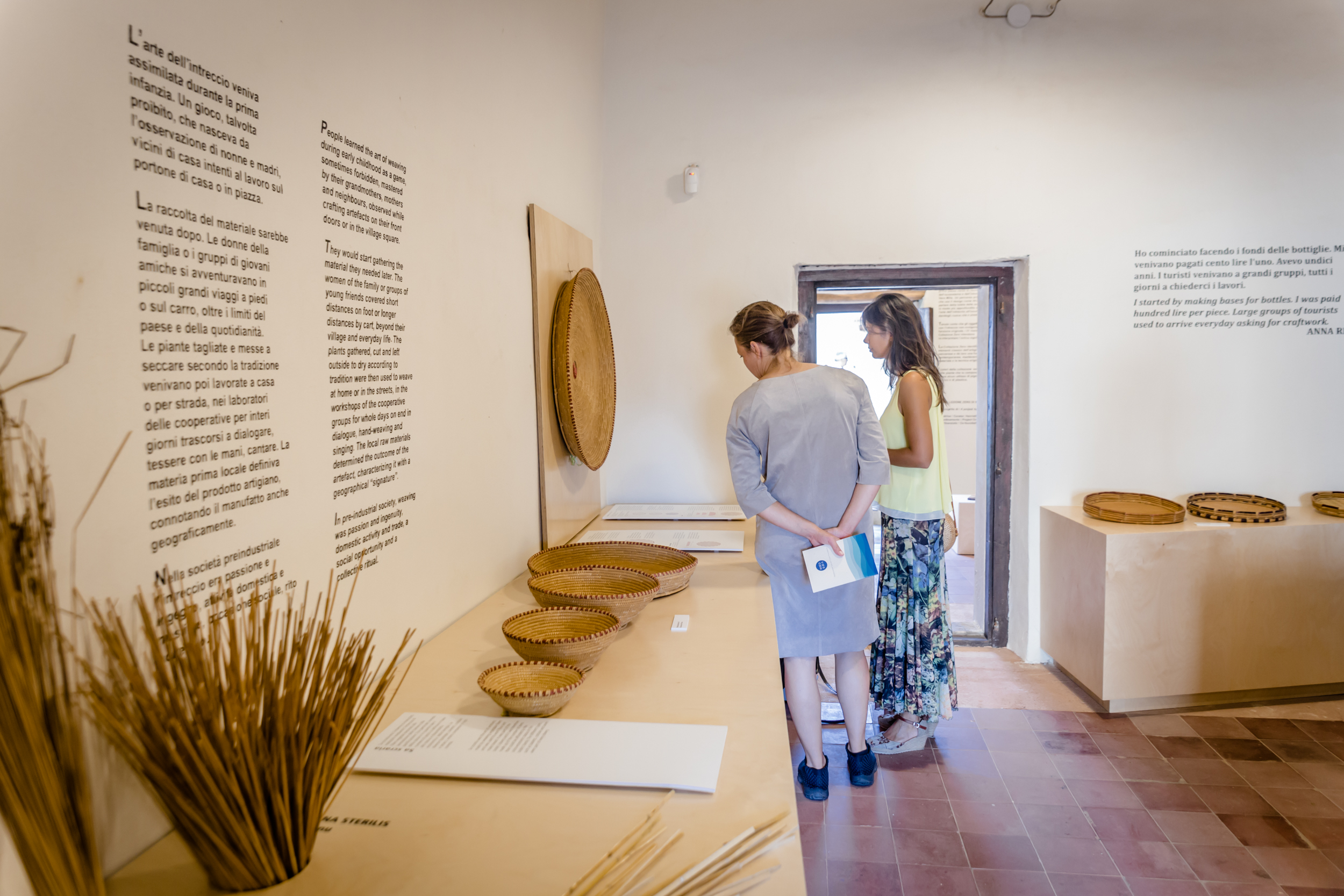



The Maristanis project is focused on different topics: governance, restoration, water consumption, protection of protected species and cultural heritage. A selection of implemented activities is reported below:
The Renaturalisation and restoration of a riparian strip in the Sal'e Porcus pond aims at thickening the vegetated areas along the pond banks, creating a filter zone between the areas dedicated to agricultural activity and those of higher natural value. This improves the health of the habitats present and reduces their fragmentation and the conservation status of the ecosystems.
An artificial island for nesting has been created with waste products from mussel farming, mussel shells that cannot be sold or that are leftover from production, with the aim of nesting important species of sea birds, Terns and Laryngites, that already frequent the area.
A precision agriculture project has been developed in the area focusing on the efficient use of water and other inputs (including chemical products such as fertilisers, herbicides and pesticides). Several technologies were tested in pilot projects to reduce water use in farming activities. The most successful pilot experience was the use of drones to map the soil and check for water and other input requirements.
During the project implementation, the active involvement of stakeholders and raising awareness have been very relevant. More than 400 stakeholders were involved in the activities directly or indirectly, particularly from the agriculture, fisheries and tourism sectors.
An important awareness-raising action has been developed with the schools on WWD and Coast Day, with clean-up, training events, competitions and the creation of an educational kit.
The experience has highlighted the importance of collaboration between local actors and how multi-objective interventions can be the winning key to increasing the support of the local population and administrations as a single intervention has benefits for different categories of stakeholders and promotes multiple ecosystem services.
The artificial island is an opportunity to combine the productive reality with the naturalistic one to amplify the conservation potential of the area and make it a unique reality in Sardinia. The outcome is conditioned by external conditions that are not directly linked to the intervention. Constant monitoring is necessary to increase or modify the nesting support action.
The precision agriculture project with the drone turned out to be an efficient technology. Results show that irrigation based on drone-collected data can lead to a 30% water saving and fertilisers reduction. Due to the low cost per hectare compared to other technologies (such as micro or sub-irrigation) is especially efficient for large size croplands and water-intensive crops, such as maize and rice.